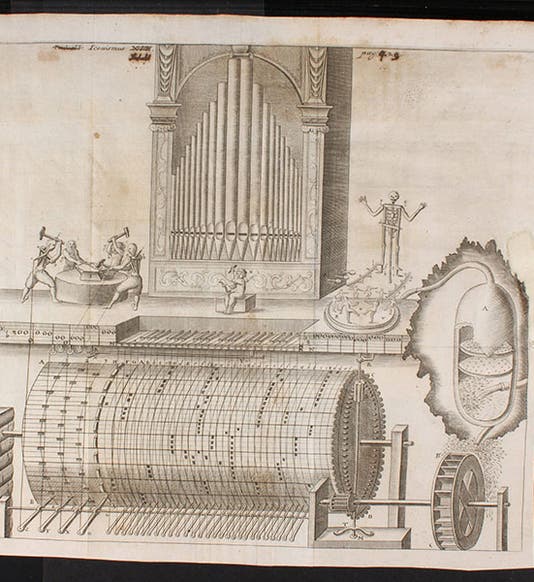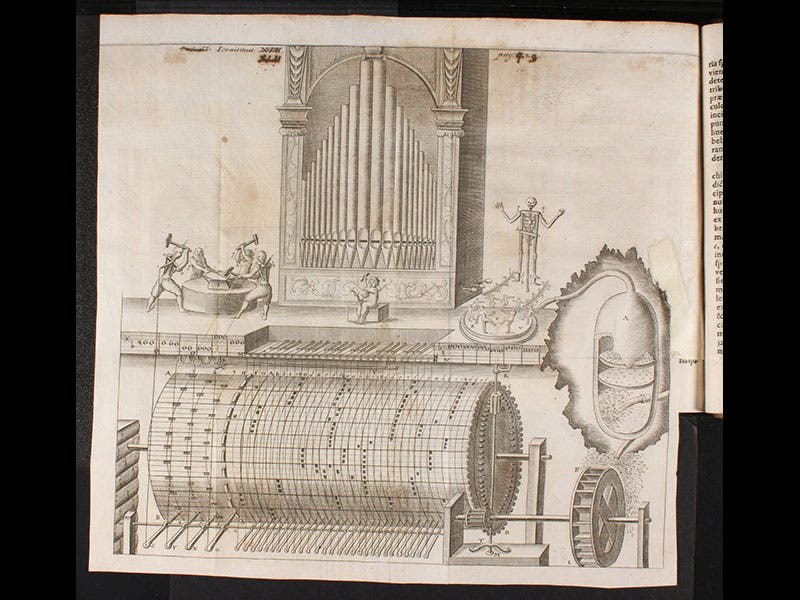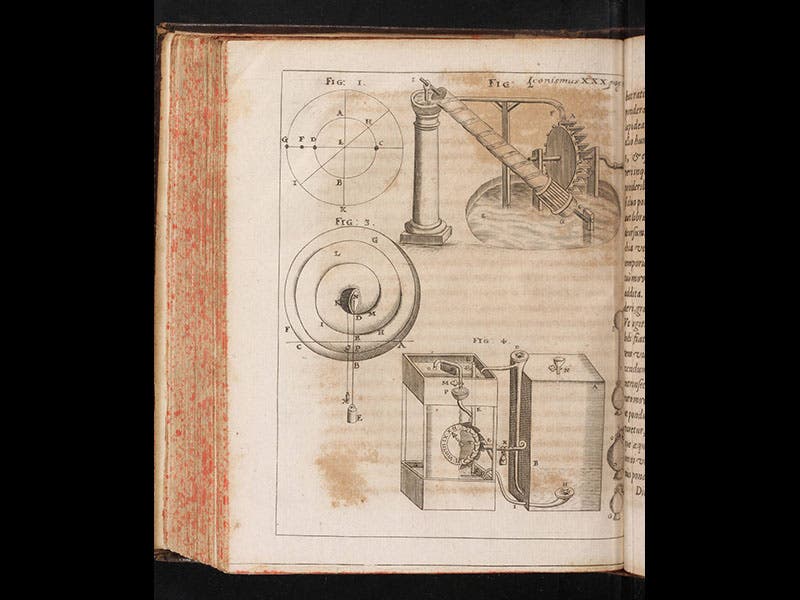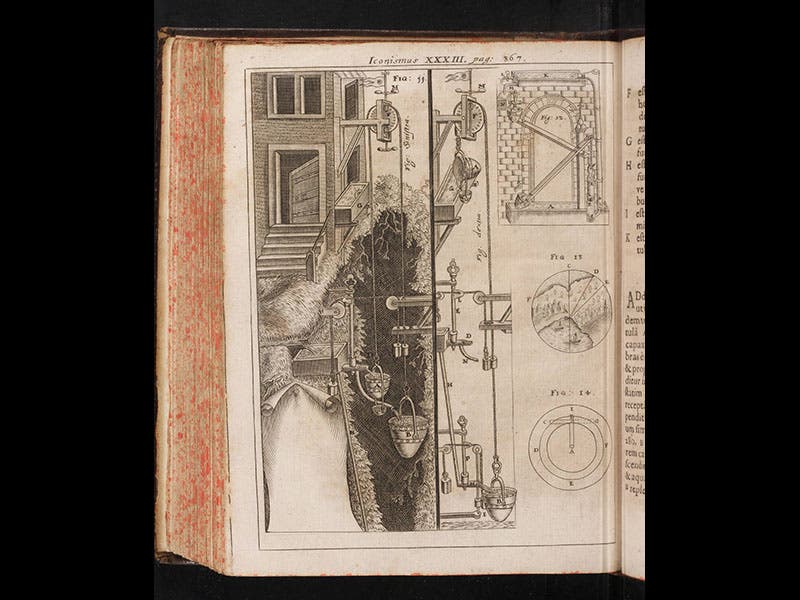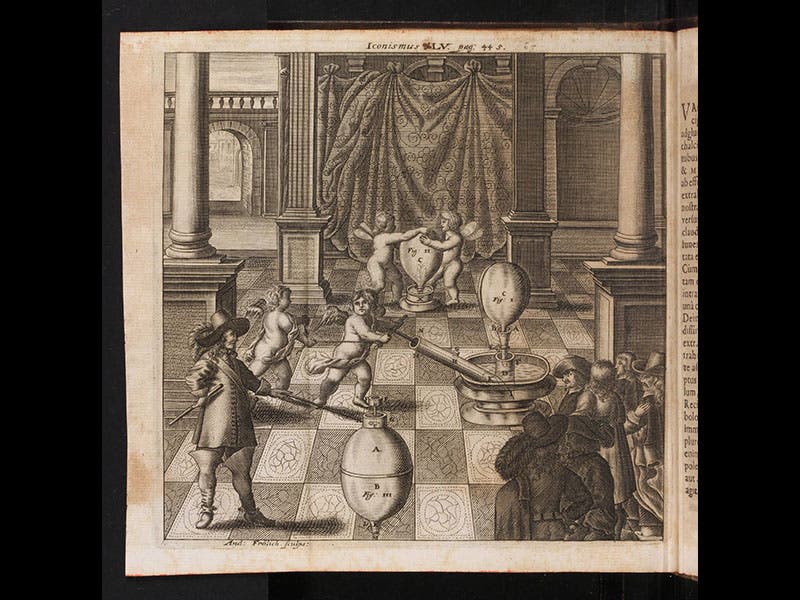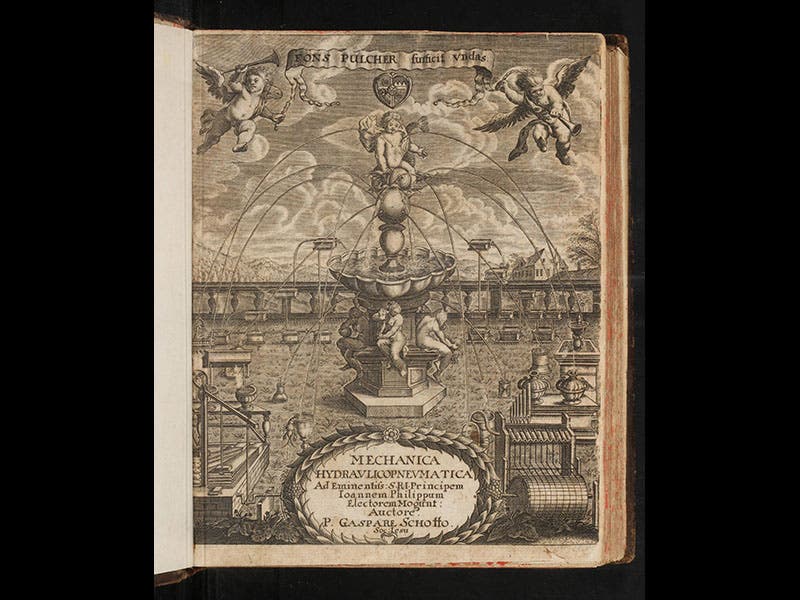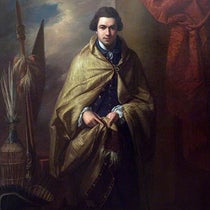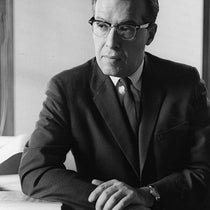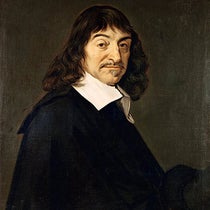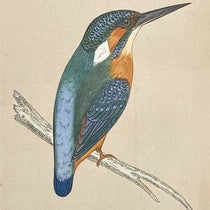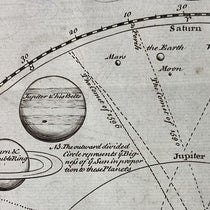Scientist of the Day - Gaspar Schott
Gaspar Schott, a German Jesuit scientist, was born Feb. 5, 1608. Schott has always been in the shadow of his fellow Jesuit, Athanasius Kircher, but Schott would not have objected, since he revered Kircher and considered him his intellectual superior. Schott was able to work in Rome for three years, as Kircher’s assistant, but then he was abruptly transferred to Würzburg in Germany in 1655, where he would spent the last 11 years of his life. Schott, like Kircher, was a publishing machine, and he published many books on mechanics, natural magic, and cosmology. One of his early works was the Mechanica hydraulico-pneumatica (1657), which we have in our History of Science Collection. This book is all about mechanical devices powered by water or wind, such as the marvelous water organ (see first image above). Many of his machines were perpetual motion machines; we see here two water-raising machines, including an Archimedean screw, that can supposedly raise the water that keeps them turning without any additional power source (second and third images above). Before we smile too much at Schott’s naiveté, we should note that Schott was the very first physicist to realize the importance of Otto von Guerick’s invention of the air pump, and to picture it (fourth image above), 15 years before Guericke got around to writing his own book on the subject. The fifth image shows the engraved title page to his book. One of the nicer features of the Jesuits as scientists is that they loved illustrated title pages, which adds a great deal to the enjoyment of the 21st-century reader.
Dr. William B. Ashworth, Jr., Consultant for the History of Science, Linda Hall Library and Associate Professor, Department of History, University of Missouri-Kansas City

